ACKNOWLEDGMENTS
This book has been a labor of love. I began my research in the fall of 2006 as a PhD student at the University of Memphis. I believed then, and I do now, that President Bill Clinton was and is an important political figure during the last third of the twentieth century. Clintons relationship with African Americans uncovers the nuances of race in the United States. Further, Clinton represented the increasingly complex, intertwined relationship with Americas most closely guarded secret: class. Engaging middle- and upper-class African Americans while ignoring the plight of the most vulnerable allowed Clinton to win the presidency in 1992 and 1996. It greatly assisted in maintaining a critical element of the Democratic Partys political base, white working- and middle-class voters. The effects of Clintons reign as head of the Democratic Party and the United States paved the way for the inclusive presidency of George W. Bush and, most historically, the election of the first African American president of the United States, Barack Obama.
It is commonly believed that historians work alone. Many talk of the proverbial scholar sitting alone in front of a computer or typewriter with his or her notes and documents. The work of a historian is, contrary to this myth, collaboration between the historian and many others who educate, elucidate, and support the work. For this reason I have many to thank for their help in making this work possible.
First, I would like to thank the archivists and staff at the William J. Clinton Presidential Library in Little Rock, Arkansas. Their able and expert assistance was a godsend as I conducted the research for this book. I am forever grateful to them. Also, I wish to thank the staff of the Special Collections Library at Duke University. The research grant from the John Hope Franklin Center was very important to my work. Second, I wish to thank the following people: John Hope Franklin, William Winter, Tom Kean, and other members of the Presidents Initiative on Race for speaking with me about the important work they eagerly pursued. Peter Edelman was very helpful in explaining the atmosphere within the Clinton administration and in Washington, D.C., during the tense debates over welfare reform. Moreover, I wish to thank Beverly Bond, Arwin Smallwood, Janann Sherman, Daniel Unowsky, Charles Crawford, and Karen Bradley at the University of Memphis. These fine individuals were instrumental in making me the historian I am today. The University of Memphis Department of History provided wonderful support in the form of a grant to support my research. While I may be biased, I believe the University of Memphis is the finest research institution in the United States. The tremendous work done by the faculty and staff and the expert leadership of Shirley Raines, president emeritus, makes the institution a wonderful and intellectually stimulating place in which to work and study.
There is one person, however, that I wish to thank most for making me the historian I am today, Dr. Aram Goudsouzian. Aram is one of the most important individuals in my professional life. He was tough! He was blunt! But he was always fair and constructive and encouraging. He disabused me of journalistic notions and forced me to think like and write like a historian. Also, Aram was key in getting my manuscript to the right people. I cannot thank him enough for all the work he did for me and the professional relationship we enjoy today. Thank you, Aram!
When I began looking for a publisher for my work, Aram directed me to the University of Arkansas Press. There, Larry Malley, then director and editor-in-chief, encouraged me and took great interest in my book. In essence he took me under his wing. I will forever be grateful to him for all the encouragement, support, and advice he gave me. This includes our wonderful discussions about American and Arkansas politics, the Clintons, and our shared love of sport. Equally important, I cannot say enough about the expert and wonderful support I have received from Larrys successor, Mike Bieker, and the wonderful staff at the University of Arkansas Press. They made this easy for me. As a first-time author, with tremendous professional and personal pressures, they treated with me respect and tender support, especially at very difficult moments in my life. I thank you all!
For the last eight years East Tennessee State University has been my intellectual home. This book would not have been possible without the following people: Dr. Dale Schmitt, Dr. Elwood Watson, Dr. Dorothy Drinkard-Hawkshawe, Dr. Dinah Mayo-Bobee, Ms. Mary Jordan, Vice Provost Bill Duncan, and the late Dr. Ronnie Day. I especially would like to recognize my mentor and longtime friend Dr. Paul Stanton, president emeritus of ETSU. He is a gentleman who is always willing to listen to me and support my ambitions. Without Paul I would not be where I am today. Paul gave me an opportunity and I seized it. As someone with many friends in the historical profession, I am acutely aware of the paucity of tenure track jobs. To have the opportunity to complete my doctoral work at the University of Memphis and come back to my beloved alma mater, ETSU, was a dream come true. Needless to say, Paul is a member of the Carter family and will have my unyielding respect, love, and admiration.
Finally, I wish to acknowledge and thank the most important people in my life. My parents, Joseph and Deborah, raised me to love history. Also, they have supported me in all my pursuits and encourage my ambitions. They always sacrificed for me and my sisters, Stephanie and Lisa. I love you all!
I especially want to thank the three most important people in my life: my wife, Crystal, and our children, Gracie and Maxwell. It is not easy living with a mercurial, sometimes moody academic. My wife has been doing it for more than fifteen years. She has always supported and loved me. This book could not have been written without her support, whether encouraging me or taking the kids to give me time to research and write, she did it all. Gracie has been a wonderful daughter. She is full of spunk and sassiness, which I love. Thank you, Gracie! Maxwell is the sweet, happy-go-lucky, full-of-life little boy I always wanted. Thank you, Maxwell! His interest in my work and history has been very important to me and my life. I hope my children, as they grow up, will one day read this book and appreciate the various ways in which they contributed to it. Thank you, Gracie and Maxwell! I wish to recognize the most important of all, God and my savior, Jesus Christ. My faith has grown exponentially during my adulthood. Sometimes a man really has nowhere left to turn and must fall on his knees in deference to the Lord. My life and work has only been possible because of the Almighty.
All errors in this book are mine and mine alone.
DARYL A. CARTER
November 2015

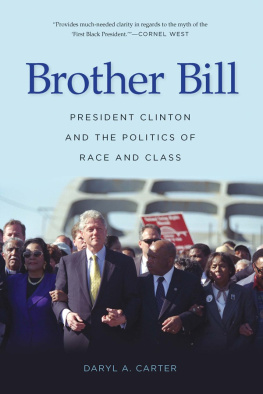

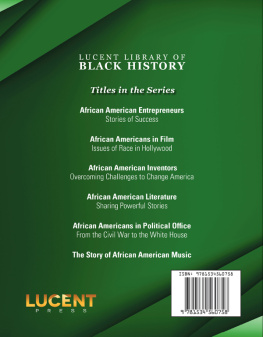
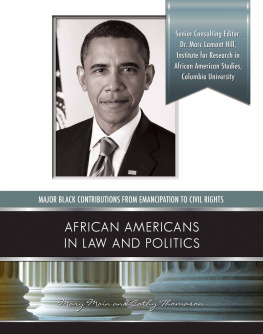
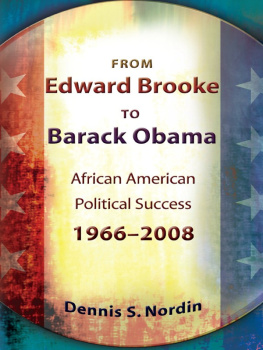

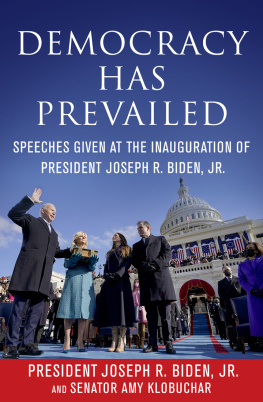
 The paper used in this publication meets the minimum requirements of the American National Standard for Permanence of Paper for Printed Library Materials Z39.48-1984.
The paper used in this publication meets the minimum requirements of the American National Standard for Permanence of Paper for Printed Library Materials Z39.48-1984.